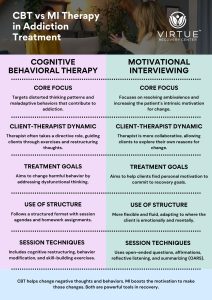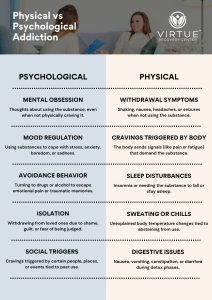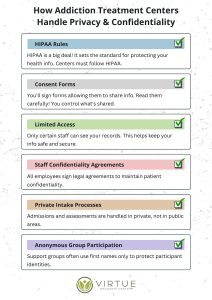Summary
Deciding to enter addiction rehab is a significant step toward recovery. However, it’s essential to be well-prepared and informed about your treatment options. This article presents 15 critical questions to ask yourself before going to rehab, helping you make informed decisions about your path to recovery. By considering your personal needs and goals, you can choose the most suitable treatment program for lasting sobriety.
Key Takeaways
- Assessing your readiness and understanding your addiction are crucial first steps.
- Identifying dual diagnosis mental health conditions can improve treatment outcomes.
- Choosing the right treatment program and support systems enhances the recovery process.
Introduction
Taking the first step toward overcoming addiction can be daunting, but it’s also one of the most important decisions you’ll ever make. Preparing for addiction rehab involves more than just packing your bags; it requires a thoughtful evaluation of your needs and expectations. By asking yourself these 15 questions, you can clarify what to expect from the rehab experience and what you hope to achieve. At Virtue Recovery Las Vegas, we are committed to helping individuals struggling with addiction find the right path to recovery.
Questions to Ask Yourself Before Going to Addiction Rehab
What are my specific addiction issues?
Understanding your specific addiction issues is the first step toward recovery. Whether you’re dealing with drug addiction or alcohol addiction, it’s crucial to acknowledge the extent of your substance use disorder. Are you struggling with prescription drugs, illicit drug use, or a combination of both? Recognizing your drug or alcohol addiction will help you find the most suitable treatment options.
Am I ready to seek help?
Before entering rehab, assess your readiness to change. Are you committed to overcoming your addiction? Acknowledging your need for help and consciously deciding to seek treatment is a vital step toward recovery. It’s essential to understand that recovery is a journey that requires dedication and perseverance.
What are my treatment goals?
Define your goals for addiction treatment. Do you aim to achieve complete sobriety, or are you focused on reducing substance abuse and managing mental health disorders? Setting clear goals will help you and your treatment provider develop a personalized treatment plan that aligns with your aspirations for recovery.
Do I have any dual diagnosis mental health disorders?
Many individuals struggling with addiction also face mental health conditions. Identifying any co-occurring disorders, such as anxiety or depression, is crucial for successful addiction recovery. Comprehensive treatment programs that address both addiction and mental health concerns can significantly improve your chances of recovery.
What type of rehab program do I need?
Deciding between inpatient rehab and outpatient programs depends on your specific needs. Inpatient treatment offers intensive support in a residential treatment setting, while outpatient care allows you to receive treatment while maintaining daily responsibilities. Consider the level of care that best suits your situation and lifestyle.
How severe is my addiction?
Assessing the severity of your addiction is essential for choosing the right treatment program. If you experience severe withdrawal symptoms or cravings, detoxification might be necessary before starting treatment. Understanding the extent of your drug use or alcohol use will guide you in selecting appropriate care.
What treatment options are available for substance use disorder?
Explore the various treatment options available, such as evidence-based therapies and 12-step programs. Learn about the different approaches, including counseling, family therapy, and medication-assisted treatment. Finding a program that aligns with your needs and preferences will enhance your recovery journey.
How will my alcohol and drug addiction affect my daily life?
Consider how addiction has impacted your work, relationships, and overall well-being. Addiction affects every aspect of life, and recovery requires addressing these areas. Plan for the changes needed to support your recovery, such as developing coping skills and building a support network.
What support systems do I have for addiction recovery?
Identify the support groups and networks available to you. Family, friends, and peers play a crucial role in recovery. Engaging in family therapy or joining support groups can provide encouragement and accountability as you navigate your recovery journey.
Can I afford the treatment?
Evaluate your financial situation and explore options for covering the cost of rehab. Many rehab centers offer various payment plans and accept insurance. Understanding your financial options will help you access the treatment center that meets your needs without undue stress.
What coping skills do I need to develop?
Developing effective coping skills is essential for managing cravings and stress. Identifying the ways to cope with challenges in a healthy manner will strengthen your recovery process. Therapy sessions during rehab will focus on building these skills to support long-term sobriety.
How will I maintain sobriety post-rehab?
Create a plan for sustaining sobriety after completing rehab. Consider ongoing support through outpatient treatment or aftercare programs. Establishing a solid support system and continuing counseling can help prevent relapse and maintain your progress.
What should I look for in a treatment provider?
Research the qualifications and experience of mental health professionals who will guide your treatment. A reputable treatment provider will offer comprehensive care that addresses your unique needs and supports your journey to recovery.
How will I handle potential relapse?
Prepare for potential challenges and setbacks during recovery. Understanding that relapse is a part of the process for many can help you plan for it. Develop a strategy to relapse and maintain your recovery, including seeking support when needed and adjusting your treatment plan.
How will I reintegrate into daily life after rehab?
Plan for your transition back into everyday life post-rehab. Consider how you will manage work, relationships, and responsibilities while maintaining your sobriety. Establishing a routine and engaging with support groups will help ease this transition and ensure continued success.
Importance of Choosing the Right Treatment Program
Choosing the right treatment program is critical for achieving lasting recovery. With various options available, from inpatient rehab to outpatient programs, it’s essential to find a program that aligns with your needs and goals. At Virtue Recovery Las Vegas, we offer personalized addiction treatment services tailored to each individual’s journey. Our programs incorporate comprehensive care, addressing both substance abuse and mental health disorders. By selecting a program that resonates with you, you can embark on a path to sustainable recovery.
Conclusion
Before entering addiction rehab, asking these 15 questions can provide valuable insights and help you make informed decisions about your treatment journey. Understanding your specific needs and setting clear goals will guide you in choosing the most appropriate treatment options. At Virtue Recovery Las Vegas, we are dedicated to supporting individuals struggling with addiction. If you or a loved one is ready to seek help, contact us at 866-520-2861 for assistance and start your journey to recovery today.
FAQs
What should I consider when choosing an addiction rehab center?
When choosing a rehab center, consider factors such as treatment options, staff qualifications, facility amenities, and cost. Finding a center that aligns with your needs and values is crucial for successful recovery.
How do I know if I need inpatient or outpatient treatment?
The choice between inpatient and outpatient treatment depends on your specific needs and circumstances. Inpatient treatment suits those requiring intensive support, while outpatient care is ideal for individuals with more flexibility.
Why is it important to address mental health issues in addiction treatment?
Addressing mental health issues alongside addiction is essential because co-occurring disorders can complicate recovery. Comprehensive care that treats both conditions improves outcomes and supports long-term sobriety.
What financial options are available to pay for rehab?
Financial options for rehab may include insurance coverage, payment plans, and financial assistance programs. Exploring these options can help make treatment more accessible and affordable.
How can I support a loved one struggling with addiction?
Supporting a loved one involves offering encouragement, understanding, and helping them access appropriate treatment. Engage in open conversations and consider participating in family therapy to strengthen their support network.
Resources
https://my.clevelandclinic.org/health/diseases/6407-addiction
https://nida.nih.gov/publications/drugs-brains-behavior-science-addiction/drug-misuse-addiction
https://www.mayoclinic.org/diseases-conditions/drug-addiction/symptoms-causes/syc-20365112













